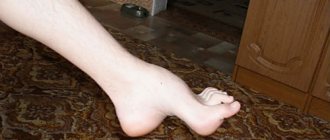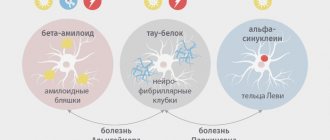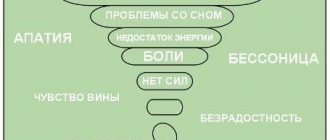Hypomania is a deviation in human behavior, expressed in prolonged hyperactivity. This mild form of mania is also considered a mental disorder. Main symptoms of the syndrome:
- excessive talkativeness;
- excessive social activity;
- obsessive professional activity;
- inadequacy of judgment.
Hypomania is understood as a mild degree of mania, in which changes in mood and behavior are long-term and pronounced, and are not accompanied by delusions and hallucinations. Elevated mood manifests itself in the sphere of emotions as joyful calmness, irritability, in the sphere of speech as increased talkativeness with relief and superficial judgments, increased contact. In the sphere of behavior, there is an increase in appetite, sexuality, distractibility, a decrease in the need for sleep, and certain actions that violate moral boundaries. Subjectively, ease of associations, increased performance and creative productivity are felt. Objectively, the number of social contacts and success increase.
Hypomania
Hypomania can be hidden and obvious, the so-called pure. Both types of the syndrome have their own additional signs and causes, which are taken into account when determining the treatment strategy. Basic complex therapy includes medication and psychotherapeutic sessions.
Causes of hypomania
If time pressure arises at work (lack of time to think about a decision), it is quite understandable that a person may become hyperactive. Sometimes there really is a need to “give it your all” in order to complete a project on time. But when work is completed, the natural reaction is to sleep and rest to replenish lost energy right away. This behavior is normal.
It’s another matter when a person cannot “slow down”, relax and switch his attention to rest. The energy becomes uncontrollable, like an overclocked train. This feature of the nervous system easily develops into a disorder called “hypomania.”
A common cause of emotional and mental overexcitement, which provokes hypomania, is the abuse of stimulants:
- strong tea and coffee (many cups a day);
- energy drinks;
- medications that stimulate brain activity.
Hypomania can also have causes in hormonal disorders. For example, hyperthyroidism (thyroid pathology), menopause or postpartum syndrome. Dysfunctions in the hormonal system are usually accompanied by low-grade fever (prolonged increase in body temperature within 37-38 degrees Celsius).
In some cases, hyperactivity occurs some time after food irritation, anorexia (refusal of food) or fasting.
Emotional overexcitement combined with hyperactivity can be provoked by uncontrolled use of potent medications, not to mention narcotic substances.
How is hypomania treated?
Not all hypomanic conditions require treatment. In some cases, isolation from external stimuli and proper sleep can restore normalcy. The following therapeutic measures are used to treat hypomania:
- Physiotherapy.
- Pharmacotherapy (motor stabilizers, neurometabolic therapy, antipsychotics).
- Diet therapy.
- Biofeedback therapy.
Treatment of a manic state is possible in a hospital
, and at home.
The hypomanic state may itself end with a return to normal mood. In some cases, hypomania develops into a more severe painful disorder - a manic state.
Symptoms of hypomania
Among the many signs of hypomania is a mood indicator. It is either elevated, or the person is in an irritated state, which is unusual for a given individual, and lasts for several days. Also, in order to assume that a person is suffering from hypomania, the following symptoms must be identified. For example, the individual must be overly active and show signs of physical restlessness. He has increased talkativeness, has difficulty focusing his attention on something specific, and is physically restless. Such a person does not need long sleep, his sexual energy does not know fatigue. In addition, there may be manifestations of irresponsible behavior bordering on recklessness. When communicating with people, a person is overly familiar.
Pure and latent hypomania
Hypomania in its pure form has pronounced main symptoms and is accompanied by aggressiveness:
- If a person is obsessed with an idea or a work project, it seems to him that everyone around him is trying to interfere. He is distracted all the time, cannot concentrate when someone is talking nearby, gets irritated and loudly expresses his anger.
- Despite bouts of impatience with other people, there is an increased need for communication. Seeing that someone is offended by harsh words, the person himself enters into a conversation, makes fun of his colleagues or friends with exaggerated gaiety, gives out thousands of pieces of advice on how to live, and encourages them to organize a holiday and go to a disco or a picnic. Often behaves too familiarly.
- The desire to do everything at once deprives you of sleep. He works day and night, but productivity turns out to be low due to the fact that a person grabs onto several things at the same time, abandons one project halfway and gets caught up in another.
- Exorbitantly inflated self-esteem makes it difficult to accept constructive criticism and advice. Actions become frivolous and judgments become superficial. There is unjustified optimism and inappropriate reactions.
The symptoms of a latent disorder are essentially the same, but the person does not seem aggressive. He also forgets about sleep, works too much (and sometimes quite fruitfully), experiences emotional highs, strives for communication, but is less conflicted.
The latent syndrome is expressed in an abnormally serene mood, which is usually not characteristic of this person, and lasts steadily for a very long time. It’s as if he’s wearing rose-colored glasses and doesn’t want to see the problems around him, doesn’t listen to forecasts and takes on the most difficult tasks with inspiration.
Hypomania is also characterized by the following symptoms:
- excessive appetite, reaching the point of outright gluttony;
- increased sexual activity;
- craving for pleasure or alcohol;
- wastefulness and shopping addiction (the tendency to make unnecessary purchases).
A person experiences constant surges of energy that urgently needs to be spent somewhere. Subjectively, people with this syndrome describe their condition as constant internal trembling and impatience. Often there is a slight tremor of the hands and twitching of the eyelid.
Behavior of a person suffering from hypomania
It can be said that patients with hypomania behave in much the same way as individuals with mania. The defense mechanism in their behavior is the constant idealization of their own person. In addition, such people completely deny everything negative that has to do with their behavior and activities. Sometimes there are hypomanic fantasies in which a person with hypomania considers himself irresistible and a particularly outstanding character. But the difference is that, compared to mania, with hypomania there is no all-consuming nature of fantasies, and there is no one-sided impact on a person’s thinking and actions.
Clinical example: Patient O., 32 years old. By nature he is sociable and active, by profession he is an employee of a small company. Over the last week I have been sleeping less due to the fact that I was implementing a new project at my job. He believed that everyone at home was bothering him, so he had to work at night. He was detained by the police at night due to the fact that he was riding roller skates at high speed along the central streets, loudly singing songs. A few days later he came into conflict with the restaurant staff when, as he believed, he was served an incorrectly prepared dish. He got into arguments with everyone at work because he believed that “his ideas are the most advanced.”
How dangerous is the disorder?
Hypomania is often perceived as a gift from above: you don’t want to sleep, you have time to work, and communicate, and live “to the fullest.”
It would seem that what’s wrong with a person living happily during this period of his life? Nothing, provided that he does not harm his mental and physical health. But usually people experiencing manic hyperactivity are unable to adequately evaluate their actions. They overestimate their own capabilities. And this inevitably leads to loss of strength, apathy and a decrease in quality of life:
- Chronic lack of sleep, in addition to reducing the ability to concentrate and impairing memory, accumulates fatigue. A period of working without sleep and without rest is replaced by constant drowsiness and “fog” in the head.
- Poor nutrition and gluttony threaten vitamin deficiency and obesity. Immunity decreases, chronic diseases worsen.
- Extravagance and a frivolous attitude to life confront a person with financial problems. And the ensuing apathy prevents you from pulling yourself together and trying to correct the situation.
- For days of increased activity, you have to “pay” for months, and sometimes years, of deep depression. The longer the “take-off” period lasted, the more painful and difficult it was to get out of apathy later.
Thus, an inadequate perception of reality that accompanies hypomania leads to loss of control over the situation, conflicts at work and poor relationships with loved ones.
There are many known cases of hypomania in creative people. Some writers and composers could live with inspiration for several months in a row, creating masterpieces of art and literature. But after a period of creative growth, they experienced a period of burnout. Wanting to “reanimate” lost inspiration, some of them tried to stimulate themselves with alcohol and drugs, but temporary insights were replaced by even greater “failures.”
Hypomania syndrome is dangerous due to its consequences and a person’s desire to regain their former energy by any means.
The danger of hypomania
Some people perceive the disease as a gift of fate, because the person does not want to sleep and is constantly working and communicating. All this negatively affects physical health.
An ordinary person cannot adequately evaluate his actions, he begins to overestimate his capabilities, resulting in apathy, loss of strength, and a decrease in quality of life.
Hypomania leads to chronic lack of sleep, a person cannot concentrate, his memory deteriorates, and fatigue accumulates in large quantities. When a person does not sleep and constantly works, he is drowsy and has a fog in his head.
The diet is also often disrupted; gluttony ends in obesity and vitamin deficiency. Immunity is completely reduced and the disease may worsen.
A person takes life lightly and has financial problems. Then apathy sets in, because the patient cannot pull himself together. The danger of hypomania is that it leads to serious depression. The longer the takeoff lasted, the harder it was to get out of apathy.
Due to the fact that a person perceives reality inadequately, he ceases to control situations, constantly conflicts at work, and cannot communicate with loved ones.
Hypomania is often characteristic of a creative person. Composers and writers suffer from it. First they create a masterpiece, the takeoff begins, and therefore burnout lasts a long time. Because of this, many begin to drink, use drugs, and everything ends in failure and failure.
Hypomania is dangerous because the patient wants to regain his energy, for this he uses various stimulant drugs, which negatively affect his health.
Prevention and treatment
It is not possible to cure hypomania in a short period of time. Treatment must be comprehensive and long-term to get rid of the syndrome and its accompanying problems.
First, you need to be examined by a psychiatrist. Through comprehensive tests, he will be able to determine whether you really have a disease or are simply emotionally overwhelmed.
After the final diagnosis, treatment is prescribed, which includes detoxification of the body, a number of essential vitamins, sedatives, and sessions with a psychotherapist. If abnormalities in hormonal levels are detected, appropriate medications are prescribed, such as Cyclodinone, Indole-3, Dihydrotachysterol. Also, for the treatment of the hypomanic syndrome itself, doses of lithium carbonate are prescribed, selected individually.
Prevention is necessary. Preventing the occurrence of a disease is much easier than dealing with its consequences. In order to avoid hypomanic syndrome, it is necessary to: reduce the level of stressful situations, limit caffeine consumption, maintain a daily routine and diet, and do not neglect healthy, adequate sleep.
"Indole-3" balances hormonal levels
Diagnosis of hypomania
The main criteria are:
- Elevated or irritable mood that is abnormal for the individual and persists for at least 4 days.
- At least 3 symptoms from the following must be present:
- increased activity or physical restlessness;
- increased talkativeness;
- difficulty concentrating or distractibility;
- decreased need for sleep;
- increased sexual energy;
- episodes of reckless or irresponsible behavior;
- increased sociability or familiarity.
Differential diagnosis
Hypomanic episodes are possible with hyperthyroidism, in this case they are combined with autonomic reactions, increased temperature, Graefe's symptom, exophthalmos, and tremor are noticeable. Patients o. Hypomania can also occur during the food arousal phase of anorexia or when fasting treatment is used. With true hypomania, on the contrary, appetite is increased. Hypomania is also characteristic of intoxication with certain psychoactive substances, such as amphetamines, alcohol, marijuana, cocaine, but in this case there are other signs of intoxication: changes in the size of the pupils, tremor, vegetative reaction.
Differential diagnosis with other diseases
Subjectively, a person in hypomania feels great: he is full of strength and plans, his mood is excellent, his head is “clearer than ever.” From the outside, at first he also looks quite healthy and energetic; his unusual level of activity may cause surprise, but it is unlikely that anyone will suspect the painful nature of this condition.
Unlike mania, with hypomania there are no such overtly disturbing and conspicuous symptoms as ideas of greatness, chosenness, omnipotence; hallucinations; insomnia; fast incoherent speech, etc. In a hypomanic person, the ability to work remains for some time and may even increase at the initial stage. However, such unusual overactive functioning is very energy-consuming for the body, and at some point, exhaustion occurs, first of all, of the nervous system.
The hypomanic state is replaced by a compensatory decline in activity, which in some diseases can reach the level of deep depression. That is why the differential diagnosis of hypomania is very important, because a similar clinical picture at a certain stage can be given by severe mental disorders that develop into life-threatening conditions.
It is necessary to differentiate hypomania from other mental and somatic (non-mental) diseases:
- bipolar affective disorder;
- cyclothymia;
- schizophrenia;
- mania with psychotic symptoms;
- mania without psychotic symptoms;
- eating disorders (anorexia, bulimia);
- hyperthyroidism;
- organic brain lesions;
- intoxication with psychotropic substances;
- infections of the central nervous system.
In order to avoid diagnostic errors and the prescription of incorrect treatment, a differential diagnosis should be carried out by a specialist - a psychiatrist.










